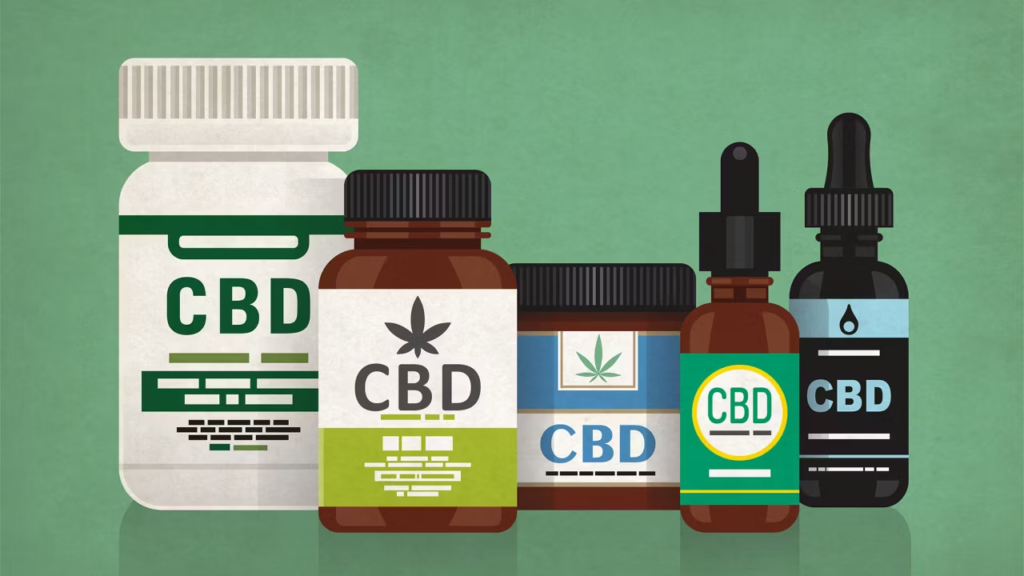Delta-8 has gained immense popularity over the past years. So, if you’re wondering what it exactly does and how it might affect your brain, look no further!
In this blog post, we’ll uncover the complete truth about Delta-8 – from its physiological to psychological effects as well as potential risks associated with using this innovative compound. Let us help equip you with all of the information needed to make an educated decision on whether or not Delta-8 is right for you.
What is Delta-8?
Delta-8 is a cannabinoid, a type of chemical compound found in hemp plants. It is a close relative of Delta-9, the most common and well-known cannabinoid. While both Delta-8 and Delta-9 contain some of the same properties, there are certain key differences between them.
Delta-8 has been reported to have psychoactive effects that are similar to those caused by Delta-9 but with less intensity. Since it can provide an uplifting feeling without causing severe side effects or impairing judgment, many people believe that it is a safer alternative to Delta-9. Additionally, research suggests that Delta 8 may be beneficial for medical conditions such as cancer, anxiety, stress, depression, and pain relief.

In terms of legality, Delta-8 remains somewhat controversial in many states because it contains THC in small amounts (less than 0.3%). However, federally it is legal under the 2018 Farm Bill since it is derived from hemp plants (as opposed to marijuana plants). Depending on your state’s regulations, you may need to check with local authorities before purchasing or consuming any products containing Delta 8.
Overall, Delta 8 could offer an exceptional balance between providing medical benefits with minimal psychoactive effects. It offers potential health benefits for people dealing with cancer or mental health issues but still allows individuals to remain functional throughout the day without feeling overwhelmed by strong THC effects.
Delta-8 And The Endocannabinoid System
The endocannabinoid system (ECS) is responsible for regulating homeostasis in the body and is made up of endocannabinoids, cannabinoid receptors, and enzymes. Delta-8 is believed to interact with the ECS similar to delta-9 THC and may have potential analgesic and anti-inflammatory properties, but more research is needed to confirm its effects. Some researchers suggest that delta-8 may be more effective than delta-9 at certain receptor sites, potentially indicating therapeutic applications.
However, opponents argue that there is not enough evidence to support these claims, and more research is needed, especially in human trials.

Receptor Interaction Of Delta-8
Delta-8 interacts with cannabinoid receptors in the endocannabinoid system, including CB1 and CB2 receptors, which may affect various processes in the body. Delta-8’s interaction with CB1 receptors may produce anti-inflammatory, anti-anxiety, or sedative effects, but the debate about its psychoactive activity is ongoing. Further research is needed to determine the exact nature of delta-8’s interaction with receptors and its effects on mental health conditions.
Delta-8 And Mental Health
Delta-8 such as URB carts has potential therapeutic effects on mental health, including alleviating symptoms associated with stress, mild to moderate depression, and anxiety without causing debilitating effects. It may also have neuroprotective and neuroregenerative benefits, and some claim it provides positive mood enhancement while remaining non-intoxicating even at higher doses.
However, more research is needed to fully understand its efficacy and safety, and caution should be exercised due to the limited information currently available. Further research is needed to better understand Delta-8’s role in mental health.
Effects On Anxiety, Cognition, And Depression
The effects of Delta-8 on anxiety, cognition, and depression are still being studied, with some studies showing promising results, while others do not. Delta-8 has been found to increase focus and improve learning abilities. However, controversy exists due to the limited research available.
Neuroprotective Effects Of Delta-8
Delta-8 is a cannabinoid that has been gaining more attention due to its healing properties. Neuroprotection is one of the amazing benefits of using Delta-8. This component can act as an antioxidant, protecting neurological cells from damage and oxidative stress.
It has been shown to reduce inflammation in nerve cells, allowing them to regenerate and have healthier functioning over time. Studies indicate that it may protect neurons from toxicity caused by chemicals found in movement disorders and other brain diseases, making it an important breakthrough for many neurological conditions.
Research into the potential of Delta-8 to protect and bolster neurological health is being conducted with astounding results, giving people around the globe an opportunity to improve their mental well-being.
What Is The Best Delta 8 Product For The Brain?
Despite the lack of research surrounding Delta-8, many users have reported beneficial outcomes after using its tinctures, gummies, and vape cartridges. While results may differ between individuals, it is essential to consult a medical professional before consuming any product containing this unique cannabinoid. With such guidance, you can be sure that your mental health will reap all possible benefits of Delta-8!

When searching for the most reliable Delta 8 product, be sure to select one from a credible company that produces its products in accordance with all federal and local regulations. This is essential if you want to guarantee high quality, safety of use, and an adequate amount of Delta 8 suitable for its intended use.
Overall, research into Delta-8 and its effects on mental health is still in its early stages, but the evidence thus far points to potential therapeutic benefits. More studies are needed to understand its effects more fully, but it is clear that Delta-8 has the potential to be a beneficial supplement for mental health.
Potential Benefits Of Delta-8
There is growing evidence suggesting Delta-8 has numerous potential benefits including its ability to provide users with a smooth mental and physical high, reduce anxiety and stress levels, aid sleep, alleviate pain, assist with type 1 diabetes, decrease nausea, and stimulate appetite. A recent study has also suggested that the use of Delta-8 may even help to fight cancer cell growth by binding to CB1 receptors in the brain.
With the increasing presence of this cannabinoid in hemp extracts, more research will be needed to better understand the wide range of effects Delta-8 can have on the human body. Despite these potential benefits, it is important for individuals wishing to use this product to speak with their doctor first before doing so.
Final Thoughts On Delta-8 Brain Interaction
Delta-8 brain interaction has been gaining traction in recent times as a way to potentially boost plasticity and healthy functioning of the brain. While research is still ongoing, studies have demonstrated that this particular cannabinoid
is able to modulate various neuronal activity and neurotransmitter concentrations as well as protect against excitotoxicity and oxidative stress – key protective mechanisms for the brain. Despite limited information on its effects at this point in time, Delta-8 appears to be a strong candidate for further exploration.
In conclusion, it can be stated that while more conclusive research is needed, initial evidence indicates that Delta-8 may have some beneficial effects on the brain’s survival and functioning.

